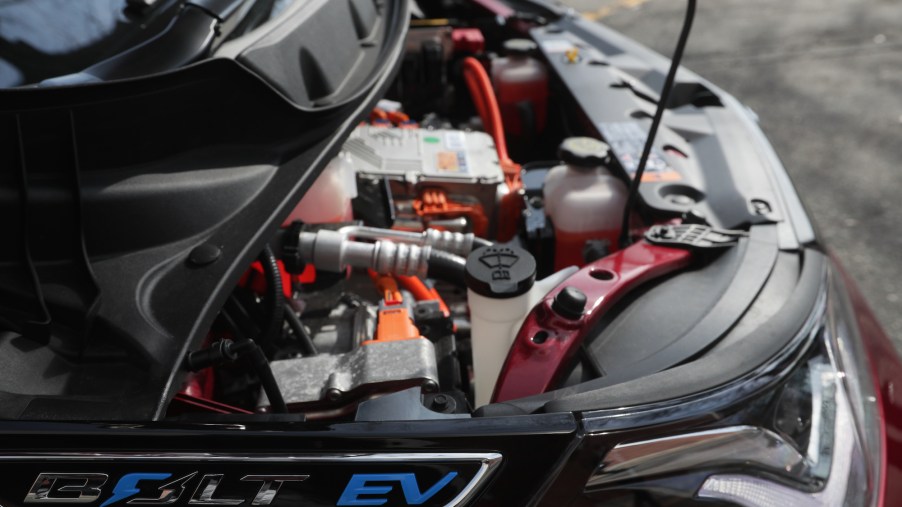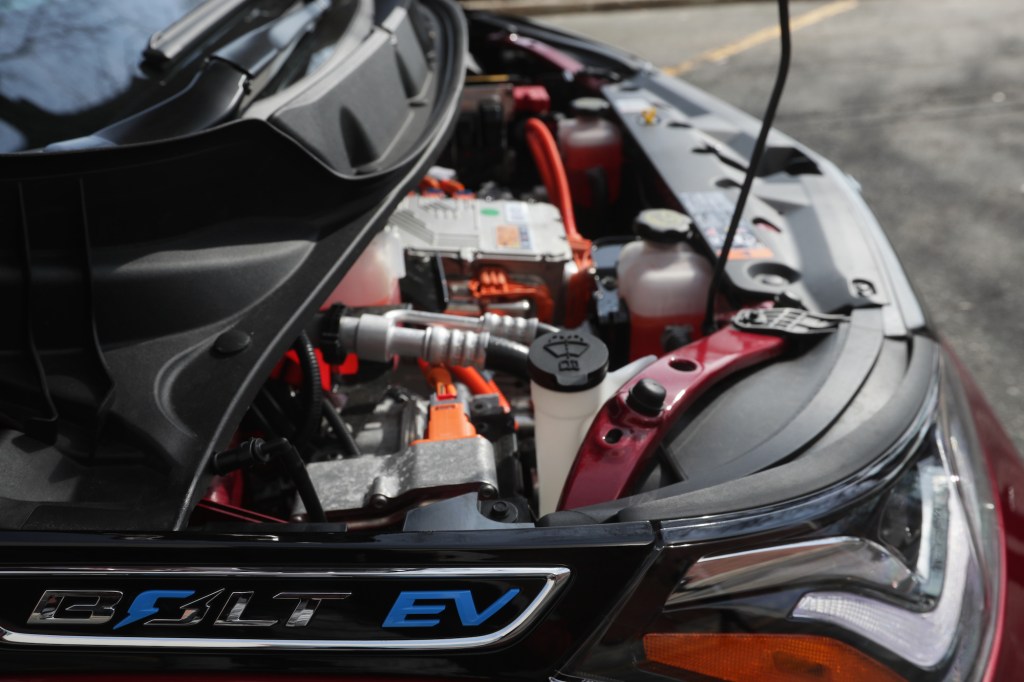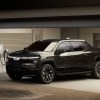
Will the Chevy Bolt Battery Fires Ruin the EV’s Reliability Rating?
The Chevy Bolt EV is a five-door, front-motor, all-electric subcompact hatchback developed by GM Korea and LG in 2012. In 2015, development was transferred to GM Proving Grounds in Milford, Michigan, where over 50 handbuilt prototypes were tested. That same year, General Motors announced the Bolt would begin production. Since then, the Chevy Bolt has become America’s favorite pocket-sized EV.
But will recent battery fires and related recalls hurt its stellar reliability ratings?
What about the Chevy Bolt’s perfect reliability rating from Consumer Reports?

The Chevy Bolt EV has long been Consumer Reports’ favorite electric ar. From 2017 through 2020, Consumer Reports gave this subcompact EV a perfect reliability score of 5/5, while owner satisfaction never dropped below 4/5.
It also received good safety and crash-test scores from the Insurance Institute for Highway Safety and National Highway Traffic Safety Administration. On top of that, over 80% of owners said they would purchase another Bolt in the future. It’s not easy for carmakers to gain such a satisfied and loyal customer base in today’s ultra-competitive market.
GM recently recalled over 50,000 Chevy Bolt EVs for battery fire risk
The NHTSA recently issued a warning to owners of Chevy Bolt EVs to “park their cars outside and away from homes or other structures because of a fire risk,” according to Consumer Reports. In addition, the agency advised owners not to leave their Bolt charging overnight. Eight months ago, Chevy recalled approximately 51,000 Bolt EVs from 2017 through 2019 model years due to faulty battery packs that could ignite, resulting in vehicle fires.
“But even Bolts that have already had recall work done aren’t free and clear: The automaker says it is aware of two vehicles that caught fire after the recall fix,” Consumer Reports stated. “Last week, CNBC reported that a 2019 Bolt caught fire while charging in Vermont even after the recall fix was performed.”
William Wallace, CR’s manager of safety policy, said Bolt owners would be wise to heed the NHTSA’s warnings. “It’s unusual to see an alert like this for cars that have already been repaired as part of a recall. We’re glad NHTSA is making this announcement and continues to investigate what’s going on. General Motors should do everything it can to help get to the bottom of this before someone gets severely hurt or killed,” Wallace emphasized.
CR also noted that 2020 Chevy Bolt EVs and newer aren’t affected because they use a different battery pack with improved chemistry techniques. And the 2022 Bolt will use an even better battery pack. The battery packs in question were supplied by LG Chem, a subsidiary of LG Corp. Notably, the Hyundai Kona also uses LG Chem batteries and was recalled after 12 reports of fires. That’s despite the fact that the batteries in the recalled Kona SUVs are designed differently and manufactured in a different factory.
So, the big question is: Will LG Chem’s batteries tarnish the Chevy Bolt’s stellar reputation? Consumers are smart. Apparently, many still love the Bolt despite the battery issues; after all, Chevy didn’t make the batteries, right?
An overview of the 2021 model
The 2021 Bolt EV starts at $36,500. It runs on an electric motor that produces 200 hp and 266 lb-ft of torque. Thanks to its lightning-quick acceleration and brisk ride, most reviewers agree the Bolt is a wonderful city car. Even merging onto the highway is a breeze. The automaker also alleges the Bolt can hit 60 mph in 6.5 seconds. The horsepower might not seem like much at first glance, but considering its size and instantaneous power delivery of electricity, it provides a fairly nice punch.
A 66kW lithium-ion battery pack powers the motor. The 2021 Chevy Bolt boasts an EPA-rated 127 mpg equivalent in the city and 108 MPGe on the highway. You’ll have little range anxiety while driving the Bolt — it has an EPA-estimated driving range of 259 miles on a full charge. This makes it one of the longest-range EVs that isn’t a Tesla. A 240-volt charger can get the Bolt a full charge in less than 10 hours. For fast charging, a DC fast charger gets 100 miles of range in just 30 minutes.


